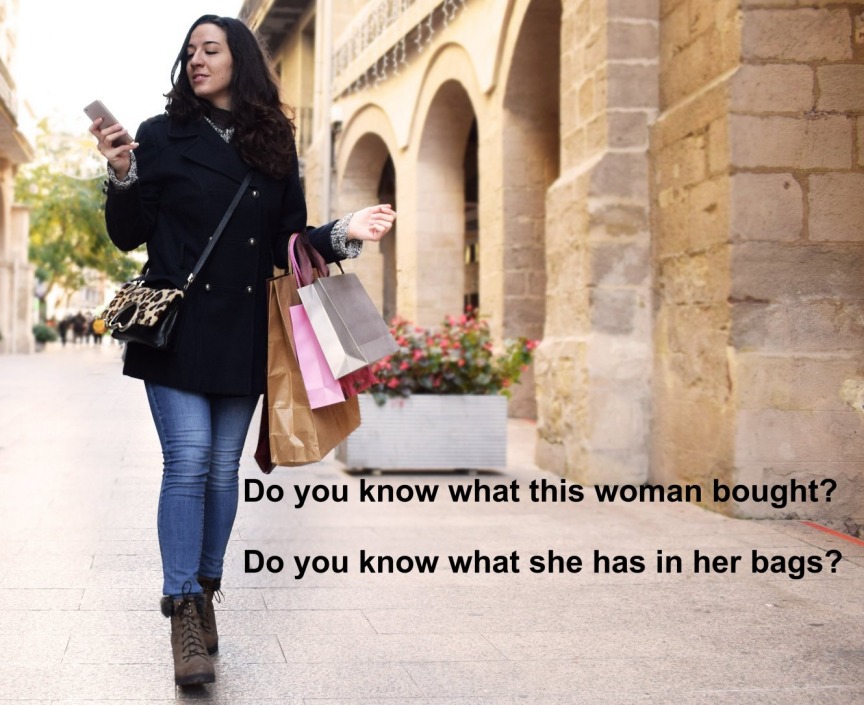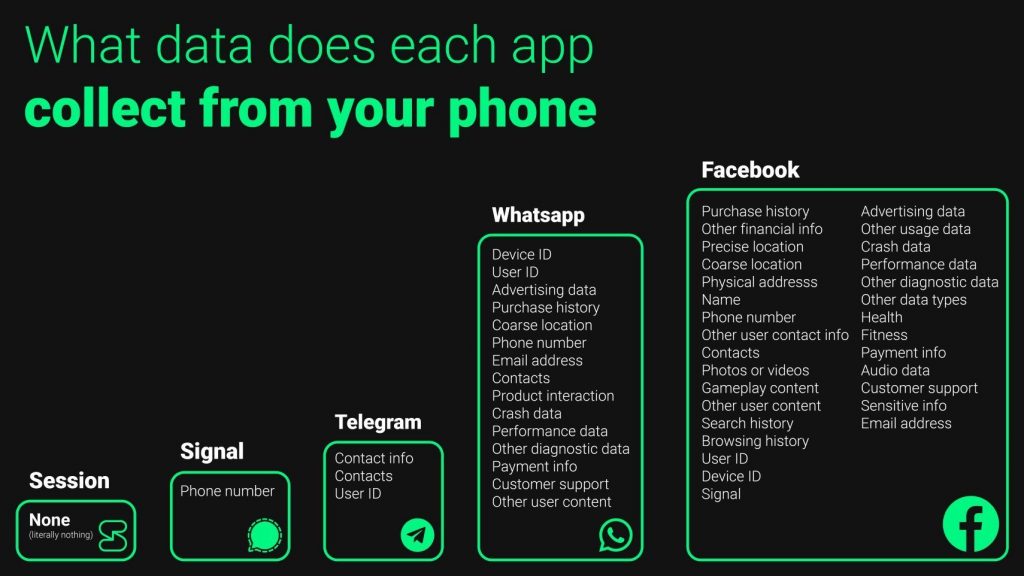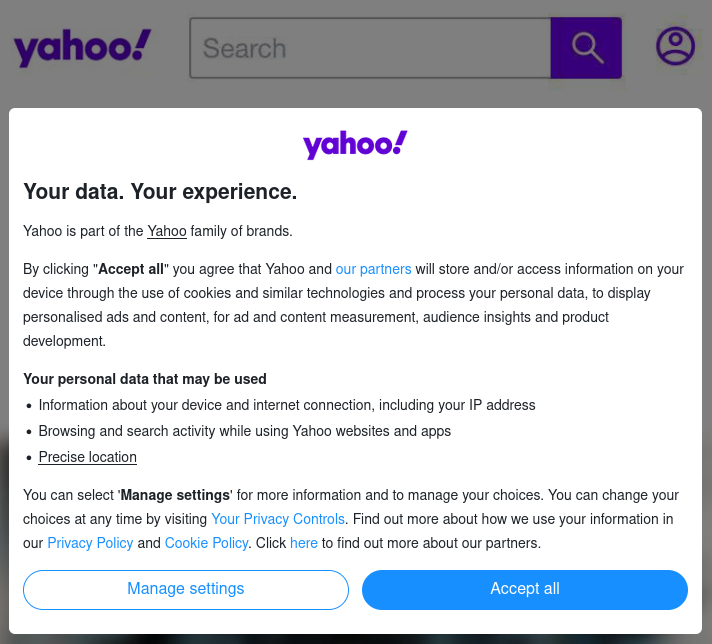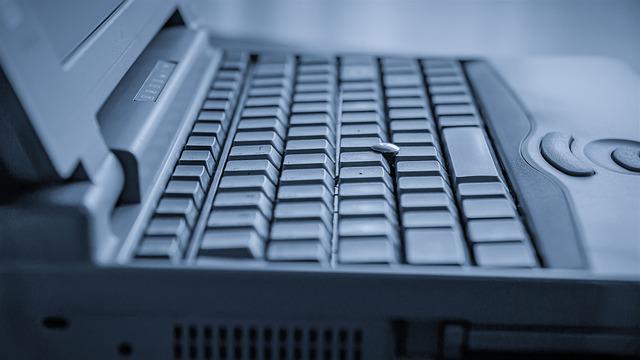
A dialog between friends.
Can one of them answer the questions on the picture?
“I know what she bought!”
“How do you know that? You can’t see through the paper bags, can you?”
“Let me do a list for you:
- organic whole-grain bread
- organic butter
- organic tomatoes
- lingerie
- two intimate massage toys
- a bride’s magazine
- ironically also the book “Nineteen Eighty-Four (1984)” from George Orwell
That’s it. If you want, even I can pinpoint the exact location where these items were bought.”
“But some things are too personal to be known, as the massage toys and maybe also the lingerie. How do you know all of that? Were you behind her? Spying on her? Do you know her name?”
“No, I don’t know her name, she is known as ft-4552-7854-9654, but if you want I can have her name. I was not behind her, spying on her! I was sitting at my desk.
The secret is … ”
What is data collection?
Before revealing the secret, let’s have a look at what ‘data collection’ is:
‘Data collection is the process of gathering and measuring information on targeted variables in an established system, which then enables one to answer relevant questions and evaluate outcomes. Data collection is a research component in all study fields, including physical and social sciences, humanities, and business’ (Wikipedia: data collection).
How on Earth can someone collect data about the items that we buy?
Did you hear about ‘GPS’, ‘social media’, ‘credit cards’, ‘camera pictures/videos’, among other things. All these so-called technologies are connected to the Internet.
Who are those who collect our data?
The biggest collectors are Facebook (Meta), Google (Alphabet) and Amazon, or other contractors. These data is sold in data auctions, where governments participate actively to get a copy.
It does not matter, rich or poor, you are traced constantly (24/24 and 7/7) with your mobile apps.
You want free services, you have to SELL YOURSELF to these social media.
The Apps know everything about you:
- all your contacts, even those secret ones
- your exact name and those of your contacts
- where do you exactly live
- your health status
- your debts
- who you date
- who you see in secret
- in which hotel you sleep
- when you get up
- when you take your shower
- what you eat for breakfast, lunch and evening meal
- even your intimate conversations they know
- your browser history
- your search history

Only by collecting this data, they can target you with ads (see Facebook and Whatsapp).
Is it legal?
Of course it is, since you signed their contracts by clicking ‘Accept’ or ‘OK’ (BTW, these contracts are too complex and almost nobody reads them). Here is an example:

What is this secret?
To continue our dialog from above:
“… The secret is their mobile phones and the pre-installed or installed apps, coupled with the credit card payments and of course the GPS and/or Wi-Fi coordinates, and sometimes the GSM coordinates too.
So we might say that we spy their individual activities legally.”
Want to know how to protect yourself and/or your intellectual property?
Please take contact with us at:
” info [at] digitaltran [dot] eu ”
or through our contact form on
https://digitaltran.eu.
